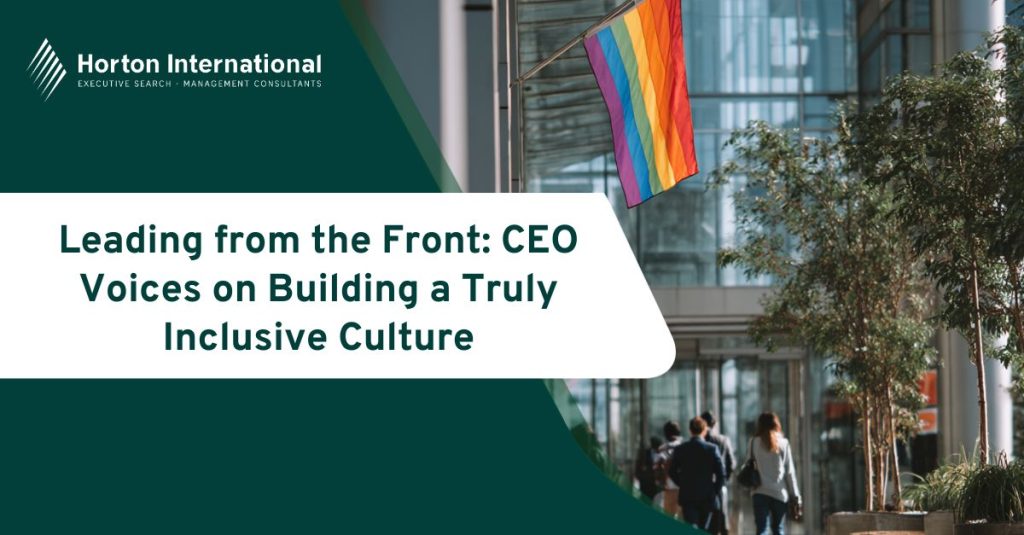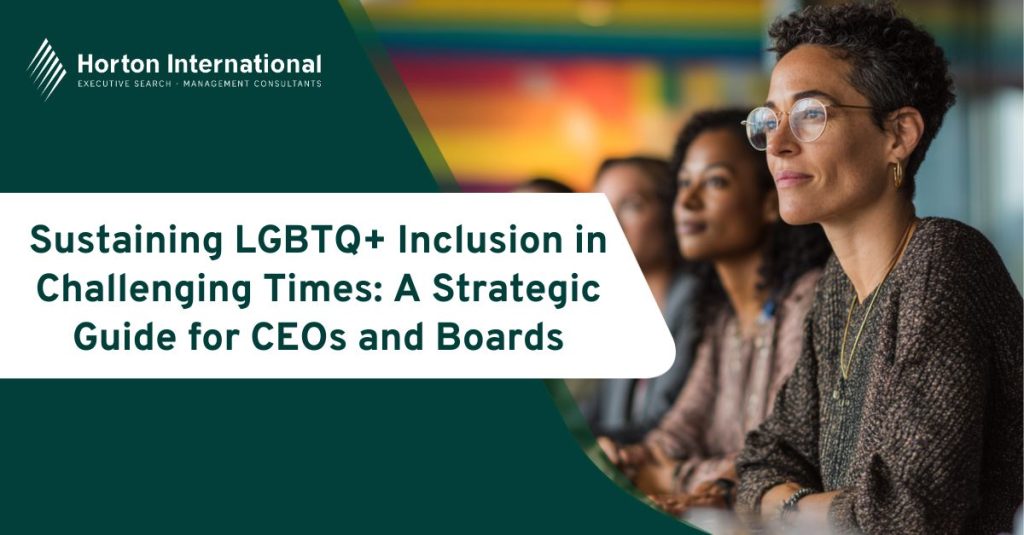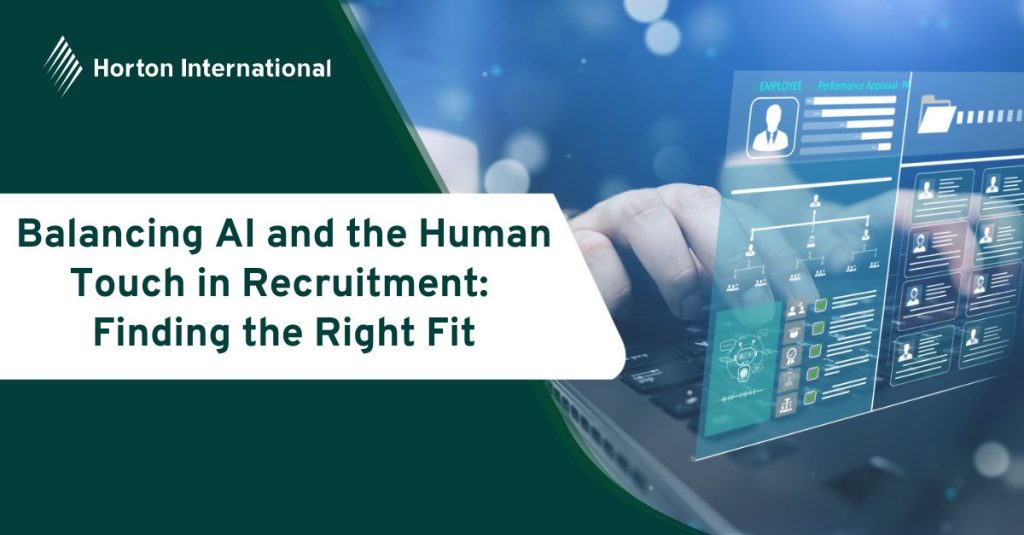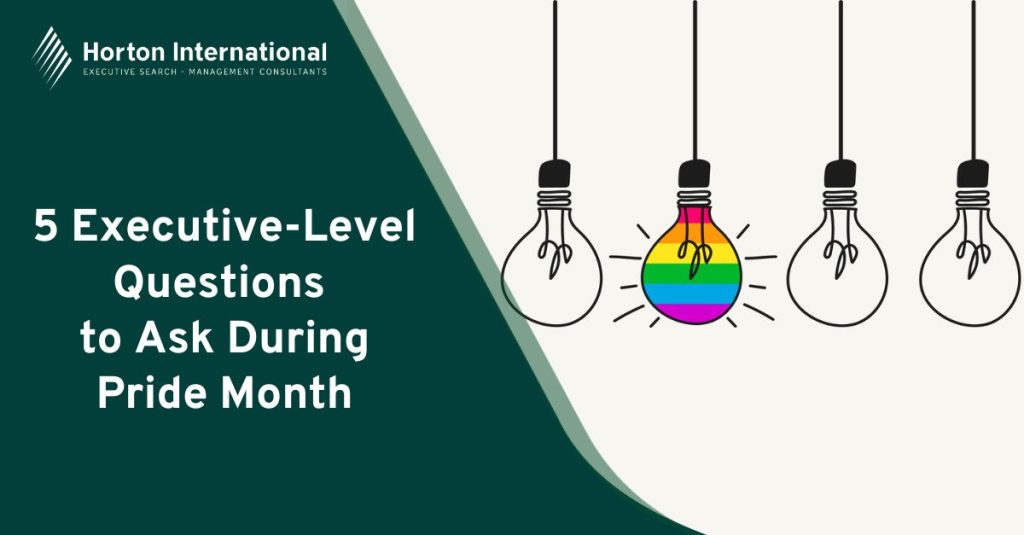The CEO’s role has always been dynamic, but future leaders will be required to be even more adaptable – now, leadership roles are being influenced by a fresh combination of factors.
The fast-evolving landscape of technological advancements, shifting workforce expectations, and global economic challenges mean that CEOs must navigate complexities, while keeping a competitive edge in a swiftly changing business environment.
Tomorrow’s leaders have to be adaptable, forward-thinking, and socially responsible – as their mission is to balance profit with purpose. From the digital transformation, to sustainability goals and the workforce’s evolution, the expectations placed on CEOs are shifting significantly.
Read on for the key trends shaping leadership roles of the future – and an actionable strategy aspiring and current executives can implement.
The 5 Key Trends Shaping the Future CEO
1. Digital, AI-Driven Leadership
The increasing adoption of artificial intelligence (AI) and automation is transforming many industries at an unprecedented pace. CEOs must now fully integrate AI into their business strategies, in order to stay competitive.
- AI can streamline operations, boost customer experiences, and sharpen data-driven decision-making.
- Automation will replace repetitive manual tasks, freeing up employee time and shifting the focus towards creative, strategic roles.
- CEOs must balance the business’s AI integration along with ethical considerations, ensuring full transparency and trust.
What does this mean for future CEOs?
Leaders need to be digitally savvy to understand AI and leverage it to drive growth, while simultaneously addressing concerns over data privacy and employee displacement.
2. Sustainability and ESG (Environmental, Social, and Governance) Goals
Consumers, investors, employees and industry regulators are increasingly demanding enhanced corporate responsibility, in both environmental and social governance. Businesses are under pressure to adopt more sustainable practices and to demonstrate a tangible commitment to ethical leadership.
- Net-zero goals and carbon reduction targets are quickly becoming standard expectations.
- Investors are prioritising ESG-focused businesses, making sustainability a new key driver of long-term success.
- Many employees now prefer to work for organisations that align with progressive values, which will require CEOs to integrate purpose-driven leadership.
What does this mean for future CEOs?
Sustainability is no longer a side initiative or minor issue, it’s now a central part of business strategy. Future leaders have to place a high priority on ESG principles if they want to build trust, retain talent and attract more investment, as well as ensure the long-term viability of the company.
3. The New Hybrid Workplace
COVID-19 massively accelerated dramatic shifts in working patterns – in the wake of the pandemic, hybrid and remote work has become the norm, rather than the exception. Employees now expect to have flexibility and a good work-life balance, alongside a strong workplace culture.
- The ‘Great Resignation’ has demonstrated that many employees will leave organisations if they fail to offer their staff meaningful work and flexibility.
- Mental health and well-being are also top priorities, placing a requirement on CEOs to foster supportive workplace cultures.
- Technology has greatly enhanced remote collaboration, but leaders must watch out for off-site workers who feel isolated and take care to keep engagement and productivity high across distributed teams.
What does this mean for future CEOs?
The future CEO must lead with empathy, ensuring workplace policies in place empower a diverse, engaged, and productive workforce. The new hybrid workforce means they must make sure they are maintaining a strong and united company culture.
4. Global Geopolitical Risks and Economic Uncertainty
Today’s volatile economic climate and turbulent global situation places extra pressure on business, especially within the UK. Leaders must be equipped to navigate ongoing economic uncertainty – from challenges that arise due to leaving the EU, through to global supply chain disruptions and inflation concerns.
- Post-Brexit trade agreements and regulatory changes will require adaptable strategies to maximise thriving international expansion.
- Inflation, the cost of living, increased overheads, and rising interest rates all have a big impact on business costs. Amidst the chaos, leaders must ensure the company stays in profit – this will require clear strategy, foresight, and savvy financial management.
- Geopolitical tensions from conflicts are impacting on energy and supply chains, responding to this effectively will demand robust contingency planning.
What does this mean for future CEOs?
Future business leaders must be agile, to strengthen the resilience of the company and ensure its ability to pivot. They need to make well- informed, data driven decisions that protect business continuity, while seizing expansion opportunities amid a climate of constant uncertainty.
5. Purpose-Driven, Inclusive Leadership
Modern CEO’s must lead with purpose, driving profitability, while ensuring the organisation contributes positively to society.
- • Diversity, Equity, and Inclusion (DEI) initiatives are an organisational imperative that require a holistic, company-wide strategy. Companies musy move beyond box ticking, or leaving DEI to HR – and instead look at ways to embed inclusion throughout the entire organisation.
- Transparent and ethical leadership helps to strengthen both consumer and employee trust.
- Purpose-driven organisations consistently outperform their competitors, as they foster strong stakeholder relationships – allowing them to retain talent, stay competitive, and secure funding for expansion from investors.
What does this mean for future CEOs?
Future leaders must be champions of inclusivity and purpose, ensuring their organisations consistently maintain a positive social impact, alongside ongoing financial success.
The Future CEO: An Actionable Strategy
CEOs must adopt a strategic approach to emerging leadership trends, to ensure they perform effectively in the modern, fast-evolving business environment. The following framework provides a robust, blueprint for the future CEO’s success:
1. Leverage the Digital Transformation
- Invest in AI and automation to boost the organisation’s operational efficiency and streamline the customer experience.
- Upskill teams to improve digital literacy across the whole organisation.
- Implement effective cybersecurity measures to ensure the business – and sensitive customer data – is properly protected against digital threats.
2. Make Sustainability and ESG Goals a Priority
- Set clear, measurable sustainability targets, like carbon footprint reductions.
- Align business operations closely with ESG principles, to attract investors, talent and customers.
- Utilise transparent reporting regarding the company’s sustainability and DEI efforts.
3. Adapt the Workplace for the Future of Work
- Offer flexible working arrangements to attract and keep talent.
- Cultivate a strong, well-connected remote working culture by leveraging digital collaboration tools and encouraging regular employee engagement.
- Invest in worker well-being – from mental health support, health check ups and mindfulness breaks, to professional development.
4. Nurture Financial Resilience
- Diversify the company’s supply chains to mitigate any fallout from global disruptions.
- Continuously monitor economic trends and adapt company pricing strategies accordingly.
- Build strong cash reserves so the business can weather any financial downturns.
5. Lead with Purpose and Inclusion
- Ensure DEI initiatives are embedded into the heart of company culture and leadership teams.
- Create a culture of transparency and ethical decision-making.
- Communicate well with stakeholders – employees, customers, and investors – to ensure business goals are fully aligned with expectations and societal needs.








